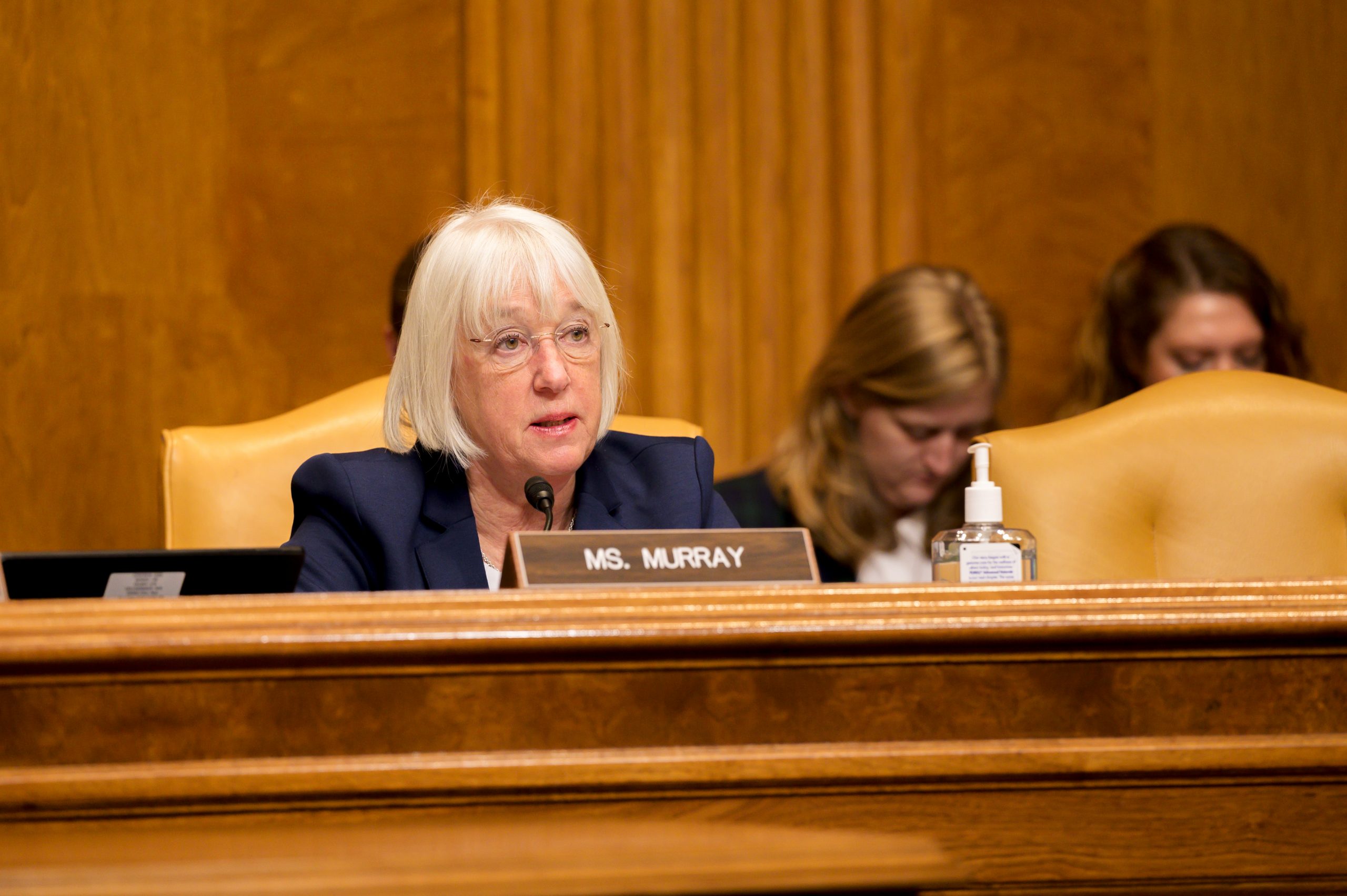Senator Murray: “A budget is a statement of values, and President Biden’s budget tells working people and families clearly and simply: ‘We have your back—and we’re going to keep building a stronger future together’”
***RELOJ: Senator Murray’s full questioning of OMB Director Young***
ICYMI: Senator Murray Statement on the President’s Fiscal Year 2025 Budget Request
Washington DC - Today—during a Senate Budget Committee hearing on President Biden’s fiscal year 2025 solicitud de presupuesto with Office of Management and Budget (OMB) Director Shalanda Young—U.S. Senator Patty Murray (D-WA), a senior member and former chair of the Senate Budget Committee and chair of the Senate Appropriations Committee, spoke about how the President’s budget invests in hardworking families and America’s future while setting our country on a more sustainable fiscal footing by simply ensuring the ultra-wealthy and largest corporations finally pay their fair share.
In opening comments, Senator Murray discussed how President Biden’s budget invests in the American people and our country’s future, stating:
"As I always say: a budget is a statement of values—and President Biden’s budget tells working people and families clearly and simply: ‘We have your back, and we’re going to keep building a stronger future together.’
"You just don’t get a sharper study of contrasts than President Biden setting forward a budget that protects and strengthens Medicare, Medicaid, and Social Security while former President Trump goes on TV to say he thinks you can ‘do a lot … in terms of cutting’ these programs.’
“But while the leader of the Republican Party wants to pull the rug out from under families and seniors, President Biden understands the source of our nation’s strength is our people—and investing in working families pays off in a major way.
“This budget offers a roadmap for progress on tackling the housing crisis that is crunching Americans’ pocketbooks—and we are really feeling this in Washington state; tackling the child care crisis—like I have long championed—so working families nationwide can find child care they need for about $10 a day; continuing our historic work tackling the climate crisis; and rebuilding our nation’s infrastructure—including funds for the Howard Hanson Dam fish passage project in Washington state, which I thank you for.
“And there is a lot more, like critical investments to bolster our national security by strengthening our military—and our alliances—which are so crucial.
“And the President’s budget recognizes it is absolutely possible to invest in the American people and put our country on more sustainable fiscal footing.
“This budget also lowers the deficit by simply closing ridiculous loopholes that billionaires count on to avoid paying the taxes they already owe, and ensuring the ultra-rich and largest corporations finally start paying their fair share. That should not be too much to ask. There’s never any good reason billionaires should be paying less than firefighters or teachers—or nothing at all!”
Senator Murray asked Director Young about how the President’s fiscal year 2025 budget request continues to make critical investments while working within the tight fiscal constraints imposed by the Fiscal Responsibility Act, stating:
"As you well know, we just passed the first slate of FY24 bills which conformed to the Fiscal Responsibility Act caps and the agreement that accompanied it. Those constraints made for pretty tough funding decisions, as I have said repeatedly—but we did manage to hammer out serious bipartisan bills that protect key investments—and we are hard at work to pass the rest.
“In FY25, we’re going to be facing an even tougher set of constraints with the second year of caps and fewer adjustments to make use of from the outset.
“Can you talk more about how the President’s budget protects and strengthens our core investments, particularly on the non-defense side of things, while working within the caps? What are the tools you all employed to make sure we are able to pass a strong set of funding bills within the caps?”
In response, Director Young said:
“Non-defense discretionary …. we’re talking about veterans funding, we’re talking about the Department of Homeland Security, child care, Department of Education, Pell Grants—these are absolutely critical programs. It’s the smallest amount we spend in the federal government…
“In this budget, because a lot of the debt deal had adjustments to make sure adequate funding could be had or used to make sure your ‘24 process could happen—this budget shows a path by using adjustments that have historically been used, like changes in mandatory programs, and emergency spending where necessary.
“Congress has used both of those tools in the past in appropriations bills, and it’s going to be needed more than ever at higher levels to ensure that programs like NIH and every other place that has bipartisan support isn’t cut unnecessarily.”
In speaking with Director Young, Senator Murray also reiterated the importance of the President’s request for key Washington state priorities—including for the Howard Hanson Dam fish passage facility project and for Hanford. In the government funding bills that Senator Murray negotiated and were signed into law on Saturday, Senator Murray secured $50 million for the construction of the fish passage facility and secured $3.035 billion for Hanford, $191.4 million above fiscal year 2023. For fiscal year 2025, the President’s budget requested $500 million for the Howard Hanson Dam fish passage facility and $3.108 billion for Hanford—a $72.2 million increase over the recently-enacted level.
###


